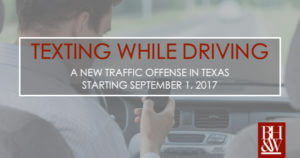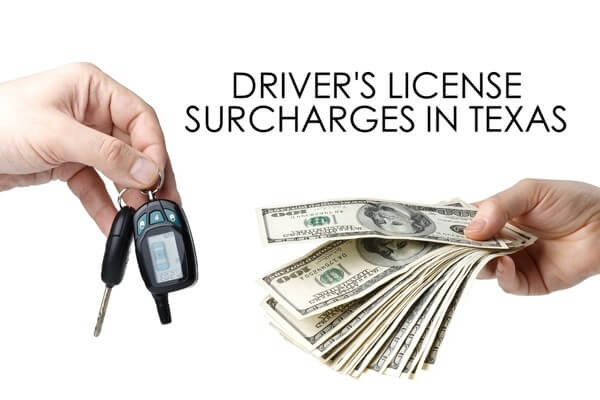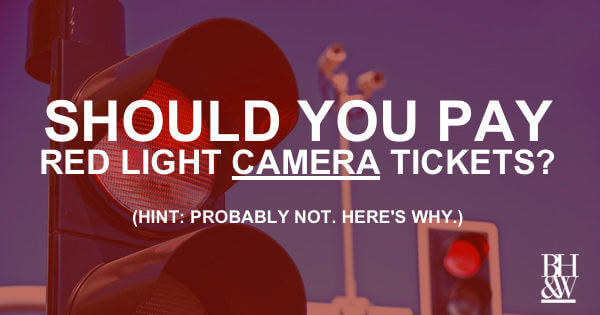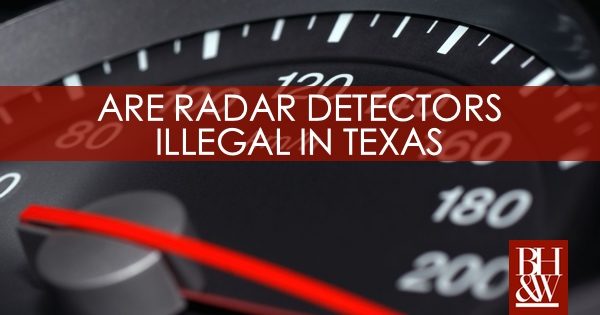 Virtually every state in America has a statewide law banning the use of cell phones or texting while driving. Until recently, Texas has had minimal restrictions on cell phone usage while driving. Such restrictions include:
Virtually every state in America has a statewide law banning the use of cell phones or texting while driving. Until recently, Texas has had minimal restrictions on cell phone usage while driving. Such restrictions include:
- drivers with learner’s permits are prohibited from using handheld cell phones in the first six months of driving;
- Drivers under the age of 18 are prohibited from using wireless communications devices;
- school bus operators are prohibited from using cell phones while driving if children are present; and
- in school zones, all drivers are prohibited from texting and using handheld devices while driving.
However, after many failed efforts, Texas has finally passed a law banning the use of handheld devices in certain situations, namely texting. On June 6, 2017, Governor Greg Abbott signed HB 62, which makes using a portable wireless communication device (i.e. a cell phone) to read, write, or send an electronic message (i.e. a text) while operating a motor vehicle a misdemeanor offense.
Notice is Required to be Posted by DPS of the New Ban
The Texas Department of Transportation will be required to post signs on interstate and U.S. highways entering the state indicating that texting while driving is prohibited and carries a fine. Additionally, the new law requires that the driver’s license test cover knowledge about the effects of texting while driving or other actions that constitute distracted driving.
What is the Punishment for Texting While Driving in Texas?
Under the new law, the sole offense of “texting while driving” is not an arrestable offense. A driver’s first offense will be punishable by a fine between $25 and $99, and any subsequent offenses will carry a fine between $100 and $200. Additionally, the Department of Motor Vehicles is not authorized to assign points to a driver’s license for a “texting while driving offense.”
However, if at trial for the offense it is shown that the defendant caused the death or serious bodily injury of another person, the offense will become a Class A misdemeanor punishable by a fine not to exceed $4,000 and confinement in jail for a term not to exceed one year. Additionally, if the conduct constituting the offense is also a violation of another law, the defendant may be prosecuted under either law, or both.
Possible Defenses to a Texting While Driving Charge:
A driver may have a defense to prosecution if the driver was:
- not moving;
- using a hands-free device, including voice-operated technology;
- reporting illegal activity or summoning emergency help;
- reading an electronic message that the person reasonably believed concerned an emergency;
- relaying information to a dispatcher or digital network through a device affixed to the vehicle as part of the driver’s job;
- activating functions to play music; or
- using a GPS function.
Additionally, the law does not apply to drivers of authorized emergency or law enforcement vehicles acting in an official capacity or to drivers licensed by the Federal Communications Commission operating a radio frequency device other than a portable wireless communication device.
Furthermore, the law prohibits the search and seizure of a driver’s cell phone unless authorized by another law.
Concerns Regarding HB 62 (Texting While Driving Law)
Supporters of the law believe it will increase safety and reduce distracted driving incidents, while opponents see it as an overreach of the government into citizen’s lives. Some fear the law will allow law enforcement to gain more power to stop citizens by mistaking a person’s legal actions for texting. However, despite these reservations, this law takes effect on September 1, 2017, preempting local ordinances, and applies only to offenses committed on or after that date.
Links to the full text of the bill:
http://www.legis.state.tx.us/tlodocs/85R/billtext/pdf/HB00062F.pdf#navpanes=0
http://www.legis.state.tx.us/billlookup/History.aspx?LegSess=85R&Bill=HB62










